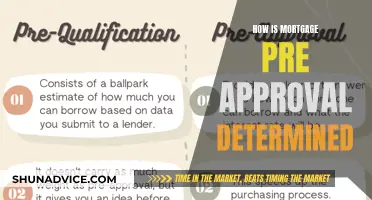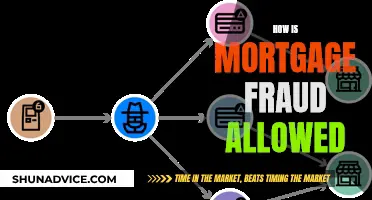
Foreclosure is a legal process that lenders use to recover the balance of a loan from borrowers who have stopped making payments. It is considered a severe delinquency and can have a significant impact on your credit score, lowering it by up to 150 points and affecting your ability to borrow in the future. While foreclosure is a common outcome for those who default on their first mortgage, it is less common for those who default on a second mortgage. This is because second mortgage lenders are paid only after the first mortgage lender, and they often recover little to nothing from the foreclosure sale. As a result, second mortgage lenders may choose to sue the borrower directly for the unpaid balance or sell the debt to a collection agency. However, if the home is worth more than what is owed on the first mortgage, the second mortgage lender may initiate foreclosure proceedings to recover their investment. To avoid foreclosure on a second mortgage, borrowers can explore options such as negotiating a settlement, requesting a short sale, or applying for a loan modification with the help of a foreclosure attorney or housing counselor.
What You'll Learn

How to avoid foreclosure on a second mortgage
Foreclosure on a second mortgage can have a significant impact on your credit score, lowering it by up to 150 points and affecting your ability to borrow in the future. However, there are several options to consider to resolve your second mortgage debt and avoid foreclosure:
Keep your lender informed
Generally, when homeowners fall behind on mortgage payments, lenders will work with them to bring the loan current. It is important to communicate with your lender and be honest about your financial situation. The lender's willingness to help will depend on your past payment records, so it is more likely that they will agree to help if you have been making payments on time with no severe defaults.
Loan modification
You could ask your mortgage lender for a loan modification to keep your home. This could involve extending the term of the loan or reducing the interest rate to lower your monthly payments.
Negotiate a settlement
Your lender might accept a one-time, lump-sum payment that is less than the total amount you owe, particularly if your home is worth less than what you owe on your first mortgage (known as being "underwater"). In this case, the lender may be more willing to accept a smaller amount to settle the debt, rather than going to the trouble of filing a lawsuit.
Forbearance or repayment plan
You may qualify for forbearance, which would give you time to get your finances in order and bring your loan out of default. Alternatively, you could negotiate a repayment plan with your lender, allowing you to make up missed payments over time.
Bankruptcy
In some cases, filing for bankruptcy may help to eliminate or restructure your debt. This could involve a process called "lien stripping", where a bankruptcy court converts your second mortgage into an unsecured debt, ordering the lender to release their lien on the property.
The High Cost of Mansion Mortgages: Average or Exception?
You may want to see also

The impact of foreclosure on your credit score
Foreclosure is a legal process that lenders use to recover the balance of a loan from borrowers who have stopped making payments. It is considered a severe delinquency and can have a significant negative impact on your credit score. This drop can affect your ability to borrow in the future, as lenders view foreclosure as a red flag, indicating a higher risk.
The exact impact of foreclosure on your credit score depends on your credit history. Foreclosure can lower your credit score by as much as 100 to 150 points, and this effect is more severe for individuals with higher credit scores before foreclosure. The impact isn't just immediate—a foreclosure can stay on your credit report for up to seven years from the date of the first missed payment that led to the foreclosure. After that, it is automatically deleted from your report.
The good news is that the impact of foreclosure on your credit score diminishes over time, especially if you take steps to rebuild your credit. This includes paying your bills on time, as payment history is the single biggest factor in determining credit scores. Reducing outstanding debts and avoiding new credit inquiries can also help. It's also important to regularly check your credit report for inaccuracies that could further harm your score and use the credit report dispute process if needed.
To avoid foreclosure, you may be able to work with your lender to bring the loan current. Lenders will usually only foreclose as a way of limiting losses on a defaulted loan, so they are often willing to work with homeowners to find alternative solutions. It is important to communicate with your lender and be honest about your financial situation. A loan modification or a one-time, lump-sum payment that's less than you owe may be options to consider.
Understanding Mortgage Payments: How High is Too High?
You may want to see also

The foreclosure process and how long it takes
Foreclosure is a legal process that lenders use to recover the balance of a loan from borrowers who have stopped making payments. The foreclosure process can vary depending on the state and typically takes anywhere from two to eighteen months.
The process begins when a homeowner misses mortgage payments. Lenders usually offer a grace period, but once this period expires, the loan is considered in default. The lender will then send a notice of default, informing the homeowner of the missed payments and the potential upcoming foreclosure action. After the third missed payment, the lender can send a demand letter stating the amount owed. At this point, the homeowner has thirty days to bring their mortgage payments up to date.
As the foreclosure process moves forward, the homeowner will be contacted by the lender's attorneys and begin to incur fees. After the fourth missed payment, the lender's attorneys may proceed with a foreclosure sale. A notice of the sale will be sent to the homeowner in accordance with state and local laws. The amount of time between receiving the notice of the trustee's sale and the actual sale depends on state laws.
It is important to note that lenders do not like to foreclose on mortgages because it offers a poor economic return. Lenders will only foreclose to limit losses on a defaulted loan. Therefore, it is crucial for homeowners to communicate honestly with their lenders about their financial situation. The lender's willingness to help will depend on the homeowner's past payment records. If a homeowner is facing financial difficulties, it is best to be proactive and reach out to the lender immediately to discuss payment arrangements.
Mortgage Borrowing: When Is It Too Much?
You may want to see also

The financial implications for lenders
Foreclosure is considered a last resort for lenders, as it offers a poor economic return. Lenders will only foreclose to limit losses on a defaulted loan. They would prefer to keep the borrower in their home and will often work with them to bring the loan up to date. However, the borrower must be honest about their financial situation and communicate with the lender. The lender's willingness to help will depend on the borrower's past payment records.
If a borrower defaults on their payments, whether the lender will initiate foreclosure depends on the home's value. If the home's value exceeds the amount owed on the first mortgage, the second mortgage is at least partially secured. In this case, the proceeds from a foreclosure sale will pay off the second mortgage in part or in full. The more money a second mortgage holder will receive after a foreclosure sale, the more likely they are to foreclose.
However, if the home is "underwater" (worth less than what is owed on the first mortgage), foreclosure is unlikely, as the second lender would get little to nothing from the sale. In this case, the second mortgage holder might look for other ways to collect from the borrower, such as filing a personal lawsuit to get a money judgment against them. The second mortgage holder can also sue the borrower if the home has been foreclosed on by the first mortgage holder, and they did not receive enough money from the sale to satisfy the debt.
Lenders can also accept a one-time, lump-sum payment that is less than what is owed. Settlements usually only come into play if the borrower is underwater. If the lender knows they won't get anything (or much) from a foreclosure, they will probably be more willing to accept a smaller amount to settle the debt.
Mortgages: Understanding the High Cost of $1800 Monthly Payments
You may want to see also

What to do if you are facing foreclosure
Foreclosure is a legal process that lenders use to recover the balance of a loan from borrowers who have stopped making payments. It is considered a severe delinquency and can have a significant impact on your credit score, lowering it by up to 100–150 points and affecting your ability to borrow in the future. Therefore, if you are facing foreclosure, it is important to take proactive steps to resolve the issue.
Firstly, it is crucial to understand the priority of debts in a foreclosure sale. In most cases, the first mortgage lender has priority over the second mortgage lender, and they will be paid first from the proceeds of the sale. The second mortgage lender will only be repaid if there are any remaining funds after the first mortgage is paid in full. Therefore, if your home is worth less than what you owe on your first mortgage, the second mortgage lender may not receive any proceeds from the foreclosure sale, making foreclosure unlikely.
If you are facing foreclosure on your second mortgage, there are several options to consider:
- Negotiate a settlement: You can try to negotiate a lump-sum payment that is less than the total amount you owe. This option is more likely to be accepted if the lender believes they will not receive anything or much from a foreclosure.
- Request a short sale: You can request a short sale, which is the sale of the property for less than the total amount you owe. This option may be considered if the lender believes they can recover more through a short sale than a foreclosure sale.
- Explore loan modification: You can ask your mortgage lender for a loan modification, which may involve changing the terms of your loan to make payments more manageable.
- Seek legal assistance: Consult with a private foreclosure attorney or a HUD-approved housing counselor to explore your legal options and understand your rights.
- File for bankruptcy: In some cases, filing for bankruptcy may help eliminate or restructure your debt. This option should be carefully considered with the guidance of a bankruptcy attorney.
Additionally, it is important to maintain open communication with your lender and be honest about your financial situation. Lenders may be more willing to work with you to bring the loan current if you have a good payment history and have not had any severe defaults.
HUD Mortgage Policy: Fueling the Housing Crisis
You may want to see also
Frequently asked questions
A "second mortgage" is a home loan you take out using your house as security. The second mortgage is junior to another mortgage (a "first mortgage").
If you default on payments and your home has equity, a second mortgage lender may foreclose to recover their money. If your home is underwater (worth less than what you owe), foreclosure likely won't cover the second mortgage, and the lender may sue you for the remaining balance instead.
You could try negotiating a settlement, requesting a short sale, or exploring loan modification. You can get support from a private foreclosure attorney or HUD-approved housing counsellor.
If your home is worth less than what you owe on the first mortgage, foreclosure is unlikely because the second lender would get little or nothing from the sale. Instead, second mortgage lenders often sell the debt to a collection agency or sue you for the unpaid balance.
Foreclosure is considered a severe delinquency and can lower your credit score by 100-150 points. This drop can affect your ability to borrow in the future, as lenders view foreclosure as a red flag. The impact can last up to seven years, but you can take steps to rebuild your credit.







